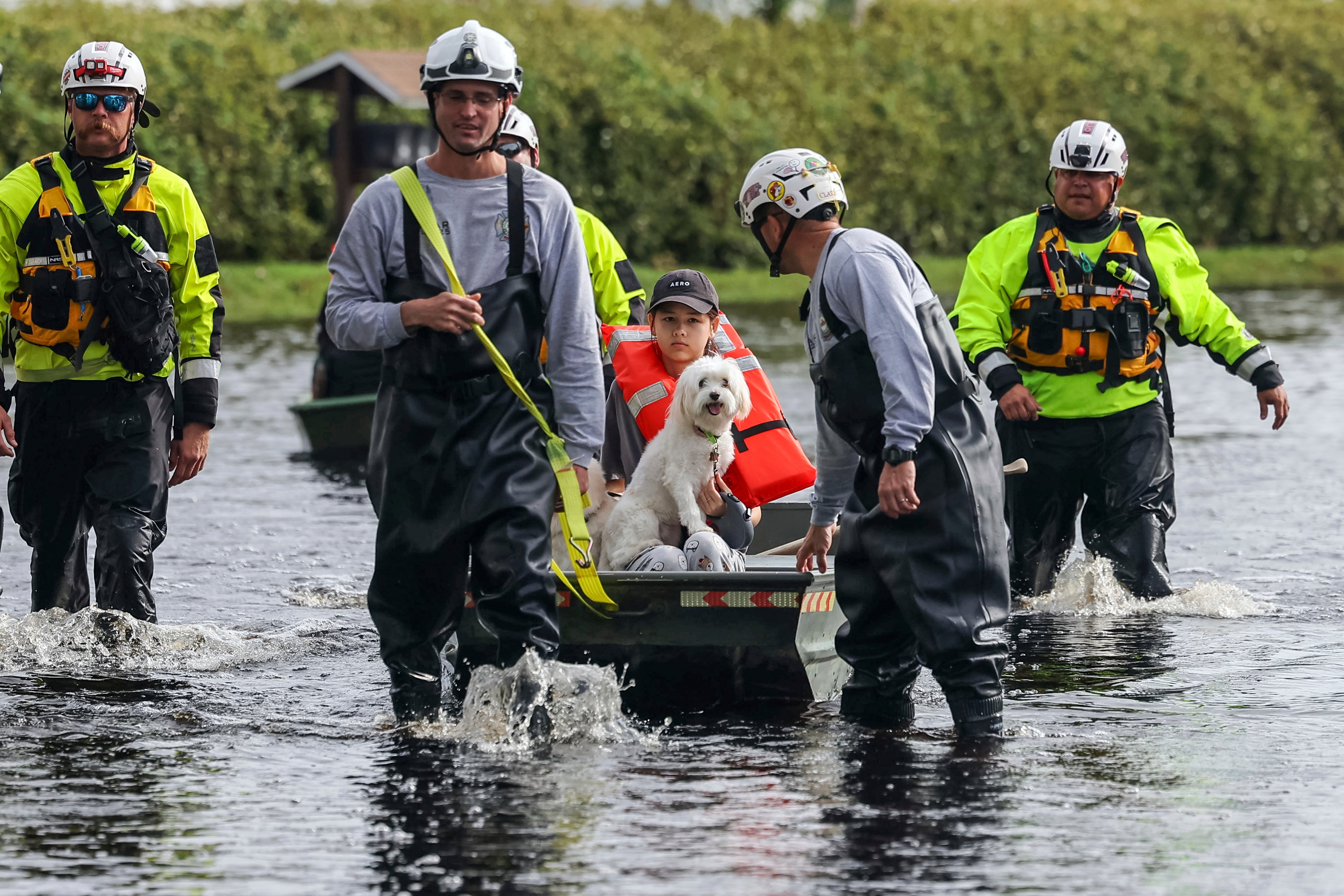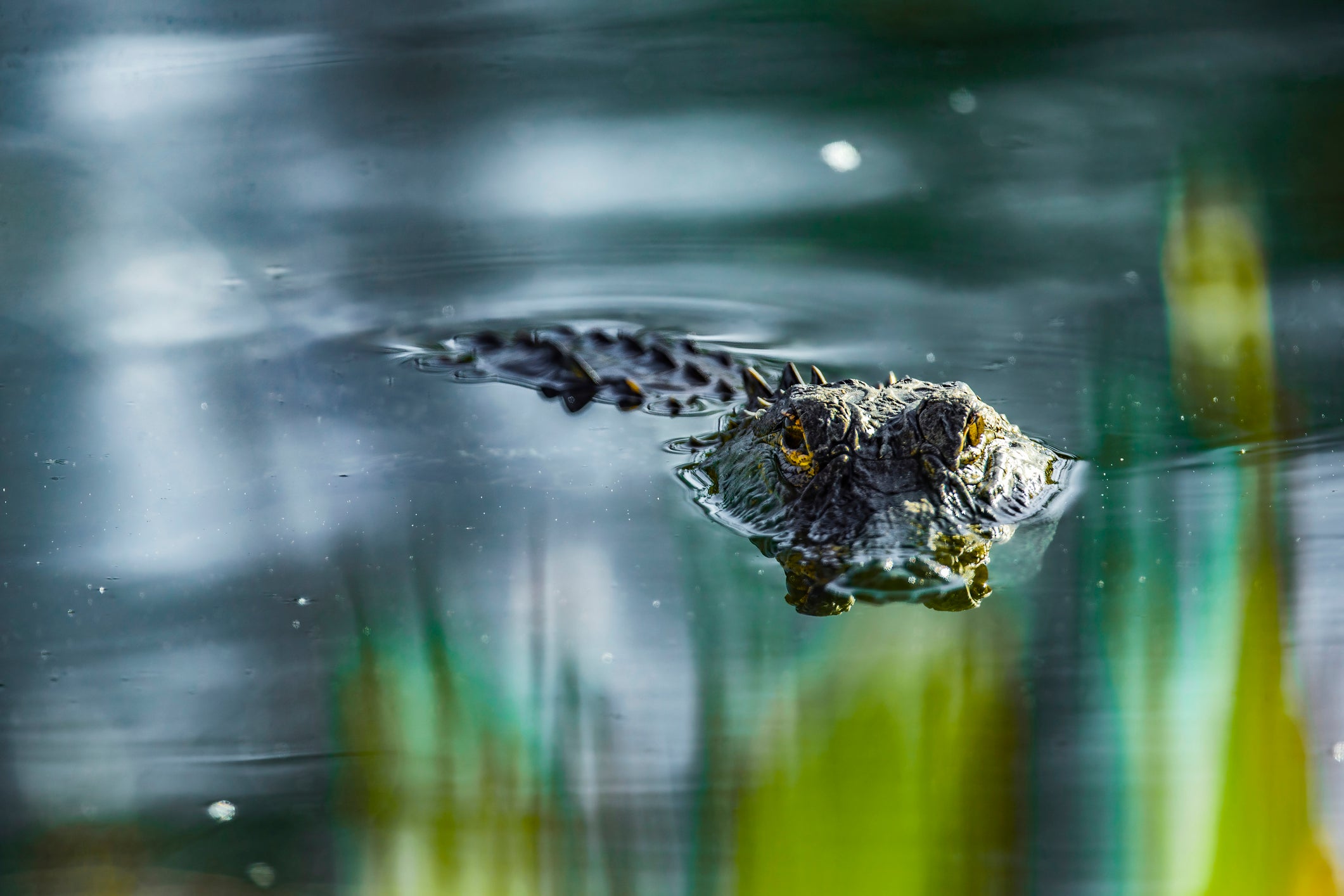Alligators and stingrays could be loose in Florida floodwaters prompting warnings from officials
Wild creatures looking for relief from Hurricane Milton floodwaters could prove dangerous for Florida residents
Massive Florida gators, stingrays and other creatures could be lying in wait in the murky floodwaters from Hurricane Milton, officials have warned.
Florida wildlife officials say multiple species are more active following hurricanes and tropical storms, with flooding displacing the creatures.
“Alligators may be observed more frequently in flooded areas after a hurricane or tropical storm,” Florida officials cautioned.
Frank Robb, the founder of a nonprofit environmental education group, told NewsNation on Thursday that coastal residents may have different concerns related to wild animals than those located inland.
“If you’re coastal, you have to worry about everything from stingrays to alligators,” he said. “If you’re in South Florida, you gotta think about crocodiles, snakes — of course.”
While Robb said these possible hidden hazards are “definitely something to be aware of,” common sense can save residents from perilous encounters.
“Obviously, if it’s not water you can see through, you probably shouldn’t be wading through it,” he said.

Those who are aware of local wildlife in their area, and have no choice but to move through floodwaters, should carry a walking stick, he said.
“Something to put in front of you to feel where you’re going,” said Robb. “A lot of times just a little bit of common sense fixes a lot of things.”
Robb said slithering snakes and alligators are looking for safe spots amid flooding — just like humans. Snakes will try to find dry places and alligators’ normal areas, such as culverts, have been flooded out.
Encounters with alligators have already been captured in videos and photos from Fort Myers to Carrollwood, including one that bit the tire of a sanitation company’s vehicle.
There are approximately 1.3 million alligators found throughout Florida, making up over a fifth of those across the Southeast. Male alligators can be as big as 14 feet and weigh more than 1,000 pounds.
They are found in all of the state’s 67 counties, and are opportunistic feeders. Adult alligators eat fish, snakes, turtles, small mammals and birds.

Serious injuries caused by alligators are rare, but people should keep their distance. Alligators have one of the strongest bites in the animal kingdom. Those bites can result in hospitalization and death. Human remains have been found in their reptilian jaws.
There are 15 species of rays in Atlantic waters along Florida’s coastline, including six stingrays. Stingrays sting only when they feel threatened. This can happen unintentionally when a person steps on a stingray.
The stingray uses a barb on its tail that pierces the skin and releases venom that can cause arrhythmias, seizures, low blood pressure and other symptoms.
While stingrays can kill people, fatal stings are rare.
Join our commenting forum
Join thought-provoking conversations, follow other Independent readers and see their replies
Comments
Bookmark popover
Removed from bookmarks